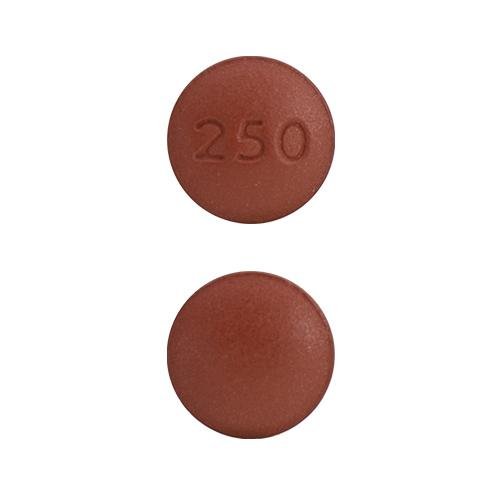Gefitinib Side Effects
Medically reviewed by Drugs.com. Last updated on Feb 8, 2023.
Applies to gefitinib: oral tablet.
Serious side effects of Gefitinib
Along with its needed effects, gefitinib may cause some unwanted effects. Although not all of these side effects may occur, if they do occur they may need medical attention.
Check with your doctor immediately if any of the following side effects occur while taking gefitinib:
Less common
- bloating or swelling of face, arms, hands, lower legs, or feet
- burning, dry or itching eyes
- change in vision
- difficult or labored breathing
- eye discharge or excessive tearing
- redness, pain, swelling of eye, eyelid, or inner lining of eyelid
- shortness of breath
- tightness in chest
- tingling of hands or feet
- unusual weight gain or loss
- wheezing
Incidence unknown
- abnormal eyelash growth
- blistering, peeling, loosening of skin
- bloating of stomach
- blood in urine
- bloody nose
- chills
- constipation
- cough
- darkened urine
- diarrhea
- fainting or loss of consciousness
- fast heartbeat
- fast or irregular breathing
- fever
- indigestion
- joint or muscle pain
- large, hive-like swelling on face, eyelids, lips, tongue, throat, hands, legs, feet, sex organs
- loss of appetite
- nausea
- pains in stomach, side, or abdomen, possibly radiating to the back
- redness, tenderness, itching, or burning of skin
- seeing floating spots before the eyes
- severe stinging of the eye
- skin rash
- sore throat
- sores, ulcers, or white spots in mouth or on lips
- unusual tiredness or weakness
- vomiting
- yellow eyes or skin
Symptoms of Overdose
Get emergency help immediately if any of the following symptoms of overdose occur while taking gefitinib:
- Diarrhea
- skin rash
Other side effects of Gefitinib
Some side effects of gefitinib may occur that usually do not need medical attention. These side effects may go away during treatment as your body adjusts to the medicine. Also, your health care professional may be able to tell you about ways to prevent or reduce some of these side effects.
Check with your health care professional if any of the following side effects continue or are bothersome or if you have any questions about them:
More Common
- blemishes on the skin, pimples
- lack or loss of strength
- dry skin
Less common
- irritation or soreness of mouth
- blisters under the skin, large, hard skin blisters
For Healthcare Professionals
Applies to gefitinib: oral tablet.
Respiratory
Common (1% to 10%): Interstitial lung disease or ILD-like adverse reactions[Ref]
Hepatic
Very common (10% or more): Increased AST (up to 40%), increased ALT (up to 38%)
Common (1% to 10%): Increased bilirubin
Uncommon (0.1% to 1%): Hepatitis/hepatic failure
Rare (less than 0.1%): Fatal hepatotoxicity[Ref]
Gastrointestinal
Very common (10% or more): Diarrhea (up to 29%), nausea (up to 18%), vomiting (up to 14%)
Common (1% to 10%): Stomatitis, dry mouth, pancreatitis, dehydration (secondary to diarrhea, nausea, vomiting, or anorexia)
Uncommon (0.1% to 1%): GI perforation[Ref]
Ocular
Common (1% to 10%): Keratitis, conjunctivitis, blepharitis, dry eye
Uncommon (0.1% to 1%): Corneal erosion/aberrant eyelash growth[Ref]
Nervous system
Rare (less than 0.1%): CNS hemorrhage
Frequency not reported: Cerebrovascular events[Ref]
Dermatologic
Very common (10% or more): Skin reactions (up to 47%)
Common (1% to 10%): Nail disorder, alopecia
Rare (less than 0.1%): Bullous conditions (including toxic epidermal necrolysis, Stevens Johnson syndrome, erythema multiforme), cutaneous vasculitis[Ref]
Reported skin reactions: acne/acne pustular, dermatitis (acneiform and exfoliative), drug eruption, dry skin, erythema, folliculitis, pruritus, rash (erythematous, exfoliative, generalized, macular, maculo-papular, papular, pruritic, pustular, vesicular), skin exfoliation, skin toxicity, and xeroderma.[Ref]
Renal
Very common (10% or more): Proteinuria (up to 35%)
Common (1% to 10%): Elevated blood creatinine, cystitis
Rare (less than 0.1%): Hemorrhagic cystitis
Frequency not reported: Renal failure[Ref]
Metabolic
Very common (10% or more): Decreased appetite (up to 17%), anorexia (10%)[Ref]
Other
Very common (10% or more): Asthenia (up to 17%)
Common (1% to 10%): Pyrexia[Ref]
Hematologic
Common (1% to 10%): Hemorrhage (including epistaxis and hematuria)[Ref]
Immunologic
Common (1% to 10%): Allergic reactions (including angioedema and urticaria)[Ref]
More about gefitinib
- Check interactions
- Compare alternatives
- Pricing & coupons
- Reviews (8)
- Drug images
- Dosage information
- During pregnancy
- Drug class: EGFR inhibitors
- Breastfeeding
- En español
Patient resources
Other brands
Professional resources
Other brands
Related treatment guides
References
1. Product Information. Iressa (gefitinib). Astra-Zeneca Pharmaceuticals. 2003.
Further information
Always consult your healthcare provider to ensure the information displayed on this page applies to your personal circumstances.
Some side effects may not be reported. You may report them to the FDA.

